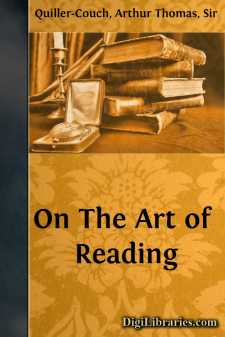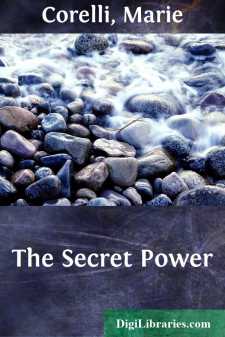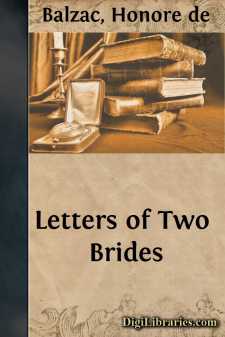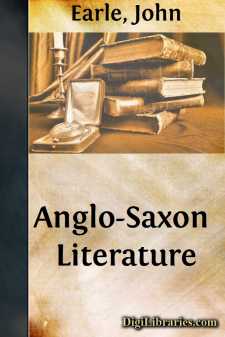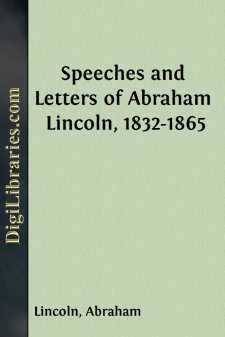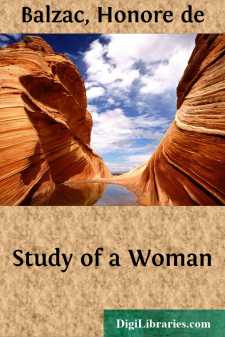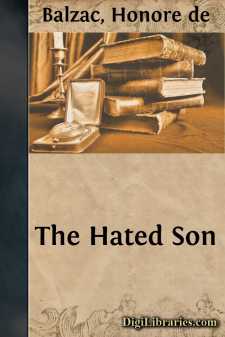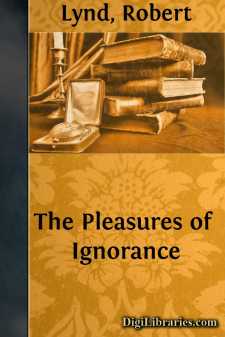Literary Collections
- American 84
- Ancient, Classical & Medieval 14
- Asian 1
- Australian & Oceanian 1
- Canadian 55
- Continental European 121
- English, Irish, Scottish, Welsh 179
- Essays 160
- General 24
- Letters 46
- Middle Eastern 1
Literary Collections Books
Sort by:
LECTURE I INTRODUCTORY WEDNESDAY, OCTOBER 25, 1916 I In the third book of the "Ethics", and in the second chapter, Aristotle, dealing with certain actions which, though bad in themselves, admit of pity and forgiveness because they were committed involuntarily, through ignorance, instances 'the man who did not know a subject was forbidden, like Aeschylus with the Mysteries,' and...
more...
by:
Marie Corelli
CHAPTER I A cloud floated slowly above the mountain peak. Vast, fleecy and white as the crested foam of a sea-wave, it sailed through the sky with a divine air of majesty, seeming almost to express a consciousness of its own grandeur. Over a spacious tract of Southern California it extended its snowy canopy, moving from the distant Pacific Ocean across the heights of the Sierra Madre, now and then...
more...
SECTION I (Pandava-Pravesa Parva) OM! Having bowed down to Narayana, and Nara, the most exalted of male beings, and also to the goddess Saraswati, must the word Jaya be uttered. Janamejaya said, "How did my great-grandfathers, afflicted with the fear of Duryodhana, pass their days undiscovered in the city of Virata? And, O Brahman, how did the highly blessed Draupadi, stricken with woe, devoted to...
more...
by:
Honore de Balzac
I. LOUISE DE CHAULIEU TO RENEE DE MAUCOMBE. PARIS, September. Sweetheart, I too am free! And I am the first too, unless you have written to Blois, at our sweet tryst of letter-writing. Raise those great black eyes of yours, fixed on my opening sentence, and keep this excitement for the letter which shall tell you of my first love. By the way, why always "first?" Is there, I wonder, a second...
more...
by:
John Earle
CHAPTER I. A PRELIMINARY VIEW. Anglo-Saxon literature is the oldest of the vernacular literatures of modern Europe; and it is a consequence of this that its relations with Latin literature have been the closest. All the vernacular literatures have been influenced by the Latin, but of Anglo-Saxon literature alone can it be said that it has been subjected to no other influence. This literature was nursed...
more...
Introduction My aim in this little book has been to give short sketches and estimates of the greatest modern English writers from Macaulay to Stevenson and Kipling. Omissions there are, but my effort has been to give the most characteristic writers a place and to try to stimulate the reader's interest in the man behind the book as well as in the best works of each author. Too much space is devoted...
more...
by:
Abraham Lincoln
INTRODUCTION No man since Washington has become to Americans so familiar or so beloved a figure as Abraham Lincoln. He is to them the representative and typical American, the man who best embodies the political ideals of the nation. He is typical in the fact that he sprang from the masses of the people, that he remained through his whole career a man of the people, that his chief desire was to be in...
more...
by:
Honore de Balzac
STUDY OF A WOMAN The Marquise de Listomere is one of those young women who have been brought up in the spirit of the Restoration. She has principles, she fasts, takes the sacrament, and goes to balls and operas very elegantly dressed; her confessor permits her to combine the mundane with sanctity. Always in conformity with the Church and with the world, she presents a living image of the present day,...
more...
by:
Honore de Balzac
CHAPTER I. A BEDROOM OF THE SIXTEENTH CENTURY On a winter's night, about two in the morning, the Comtesse Jeanne d'Herouville felt such violent pains that in spite of her inexperience, she was conscious of an approaching confinement; and the instinct which makes us hope for ease in a change of posture induced her to sit up in her bed, either to study the nature of these new sufferings, or to...
more...
by:
Robert Lynd
I THE PLEASURES OF IGNORANCE It is impossible to take a walk in the country with an average townsman—especially, perhaps, in April or May—without being amazed at the vast continent of his ignorance. It is impossible to take a walk in the country oneself without being amazed at the vast continent of one's own ignorance. Thousands of men and women live and die without knowing the difference...
more...


